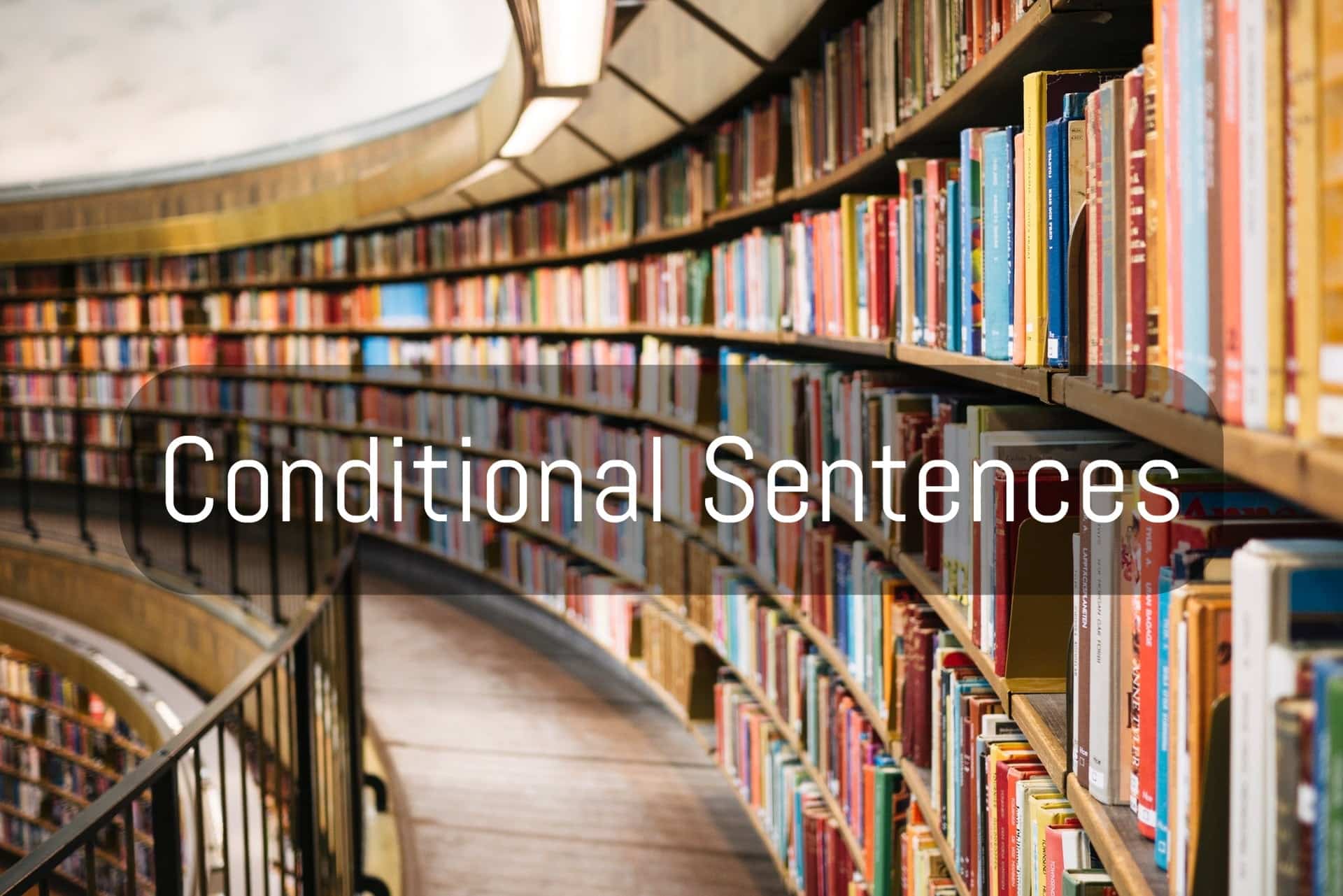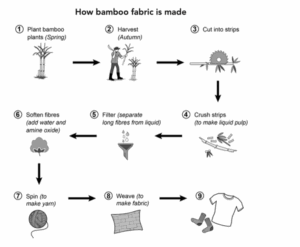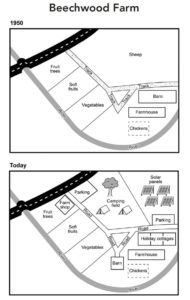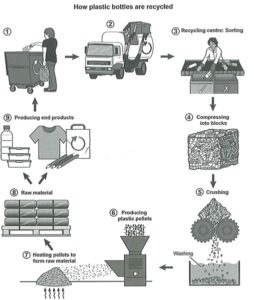This article is a complete guide to conditional sentences intended for intermediate to advanced level language learners.
A conditional sentence has two parts: a part with a condition (if-clause) and a part with the outcome or result of the condition (main clause).
Example:
If you touch boiling water, your finger burns.
Note: You can change the order of the two clauses. This does not change the meaning of the sentence. However, the comma that separates the two clauses should be removed if you do so.
Example:
Your finger burns if you touch boiling water.
Conditional sentences can be categorized into five groups: zero, first, second, third, and mixed conditionals.
Zero Conditional
We use zero-type conditionals to talk about something that is a general truth or fact.
Examples:
- If you touch boiling water, your fingers burn.
- Ice cream melts if you don’t put it in the fridge.
- If you heat water, it boils.
- You sweat if you exercise.
As you can see, both parts of the sentences are in the simple present tense. You can also replace if with every time, and the meaning won’t change. This is how you recognize zero-type conditionals.
Example:
Every time you heat water, it boils.
Note: Sometimes, we talk about things that used to be facts, meaning that they were facts in the past but not now. In this case, we use simple past tense.
Example:
- When I was a child, if I helped my mom do the dishes, she kissed me.
This sentence means that the speaker’s mom used to kiss him every time he helped her wash the dishes.
2. When I was in high school, if I was late, the teacher gave me heavy homework for the next session.
First Conditional
- If you give me your car, I will return it in three hours.
- If you talk to him, he might calm down.
- We may lose our client if we don’t complete this project on time.
- Jim is going to send me a message if he gets into trouble.
Example:
If Mike gave us his car, we could get to the party on time.
This sentence means that Mike doesn’t want to give them his car, so they won’t get to the party on time.
More examples:
- If I had a million dollars, I could buy that Lamborghini. Unfortunately, I don’t have that much money.
- If I were you, I would enjoy my free time.
- If my father were here, he would advise you not to drive fast.
Note: In examples two and three, you see that we have used were instead of was. This is not a mistake. As a matter of fact, you need to use were for all subjects when you talk about an imaginary action (not real or impossible to happen) in the present. However, when we talk about what is real or likely to happen, we use was for I, he, she, and it like we do all the time.
Examples:
- Impossible to happen: If I were you, I would spend more time preparing for the test.
- Likely to happen: I am sorry if I wasn’t clear enough in my presentation.
Third Conditional
Example:
If I had known about her medical condition, I wouldn’t have made fun of her. I’m really, really ashamed now!
In this example, the speaker has mocked someone. The action is done, and he can’t take it back. Shame!
More examples:
- If I had had more time for the exam, I could have passed. Unfortunately, I didn’t have enough time and failed.
- We wouldn’t have gone on a picnic if we had known about the storm. Unfortunately, we didn’t check the forecast and started our journey.
Mixed Conditionals
When we combine two different types of conditional patterns, we make a mixed conditional sentence. With mixed conditionals, we usually refer to the present result of a past action or vice versa.
Before we get into mixed conditionals, you need to know two things first:
- We use past tense to talk about a hypothetical (imaginary) situation in the present or future.
- We use past perfect to talk about a hypothetical situation in the past.
- The present result of a hypothetical past situation or action
- If I had taken his advice, I would own a house now.
- If I hadn’t traveled to this country, I wouldn’t be with you now.
- I would still be struggling to make ends meet if I hadn’t invested in this business.
- The past result of a hypothetical situation or action in the present
Examples:
- If you had a better relationship with John, he might have supported you last summer when you needed his help.
2. If you had the information, you would have publicized it last week.
Meaning: You’re bluffing! You don’t have the information. Otherwise, you would have publicized it last week.
………………………………………………………………………………..
- The future result of a hypothetical past situation or an action
- If I hadn’t broken my leg last week, I would be participating in the marathon tomorrow.
………………………………………………………………………………..
- The future result of a hypothetical situation in the present
- If I were at home in America right now, I would be seeing my best friend tomorrow.
Omitting if
Examples:
- If John were here, he would tell us the truth.
Were John here, he would tell us the truth.
2. If I had bought the new game, I would have played with it every day.
Had I bought the new game, I would have played with it every day.
3. If I had bought the holiday tickets earlier, I would be lying on the beach now.
Had I bought the holiday tickets earlier, I would be lying on the beach now.
4. If you should need my help, please call me.
Should you need my help, please call me.
Follow us on YouTube for more tips and resources.








